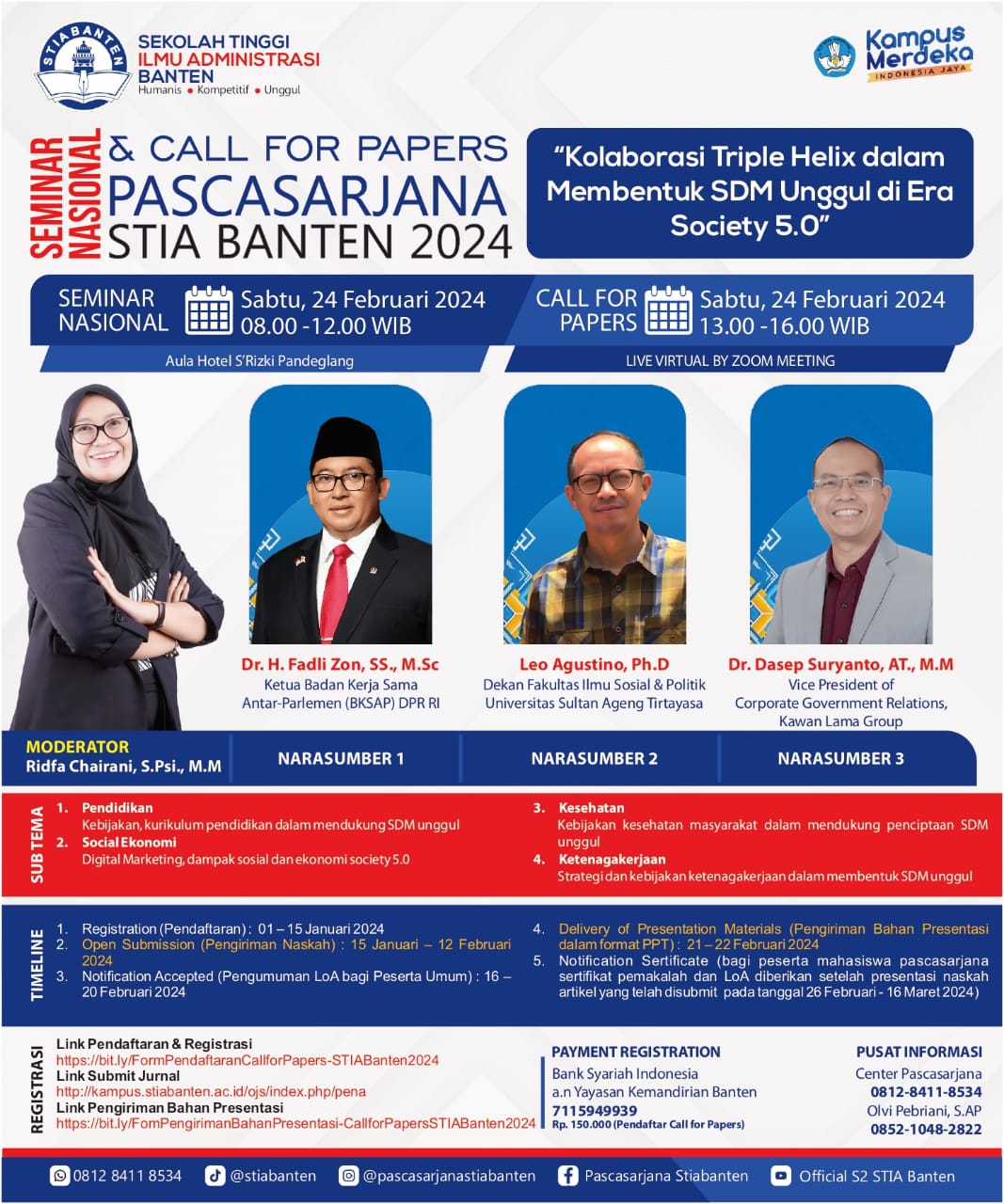Auditor Internal dalam Administrasi Pemerintah Provinsi Banten
Abstrak
Abstrak.
Artikel ini membahas niat whistleblowing auditor internal di Pemerintah Provinsi Banten dan faktor-faktor yang mempengaruhi niat tersebut. Dalam konteks meningkatnya kasus korupsi dan penyimpangan anggaran di sektor publik, whistleblowing menjadi penting sebagai mekanisme pengungkapan tindakan-tindakan ilegal dan tidak bermoral. Konsep-konsep seperti Whistleblowing System Intention (WBSI), Perceived Organizational Support (POS), Capability (Cap), Attitude Toward Whistleblowing (ATW), dan Perceived Behavioral Control (PBC) digunakan dalam analisis faktor-faktor yang mempengaruhi niat whistleblowing auditor internal. Studi ini menggunakan metode kuantitatif Structural Equation Modeling (SEM) dengan sampel 200 pegawai Inspektorat Provinsi Banten dan menemukan bahwa terdapat hubungan yang signifikan antara variabel-variabel yang diteliti. Temuan ini memberikan kontribusi penting dalam pemahaman lebih lanjut tentang niat whistleblowing auditor internal di sektor publik.
Kata Kunci: Whistleblowing System Intention (WBSI), Perceived Organizational Support (POS), Capability (Cap), Attitude Toward Whistleblowing (ATW), Perceived Behavioral Control (PBC).
Abstract
This study aims to uncover the intention of internal auditors in the Provincial Government of Banten to blow the whistle, along with the factors influencing such intentions. With the increasing frequency of complaints regarding corruption, budgetary deviations, and fraud within governmental organizations, particularly at the regional level, there is a pressing need to investigate whistleblowing behaviors among internal auditors. Fraudulent activities, including embezzlement, theft, forgery, and falsification of documents, continue to plague public officials, resulting in significant financial losses for the state. Despite the potential repercussions whistleblowers may face, whistleblowing remains crucial for organizations to correct errors and prevent reputational damage. However, employees often refrain from reporting misconduct due to fear of retaliation, lack of protection, or cultural norms within the organization. This study employs the Fraud Triangle Theory and the Fraud Diamond Theory to analyze the factors influencing whistleblowing intention, including pressure, opportunity, rationalization, and capability. The data were collected from 200 employees of the Inspectorate of the Provincial Government of Banten using a Likert scale questionnaire and analyzed using Structural Equation Modeling (SEM) in LISREL 8.80 software. The findings reveal significant relationships between perceived organizational support, capability, attitude toward whistleblowing, perceived behavioral control, and whistleblowing system intention. The study underscores the importance of organizational support and individual capabilities in fostering a conducive environment for whistleblowing activities.
Keywords: Whistleblowing System Intention (WBSI), Perceived Organizational Support (POS), Capability (Cap), Attitude Toward Whistleblowing (ATW), Perceived Behavioral Control (PBC





